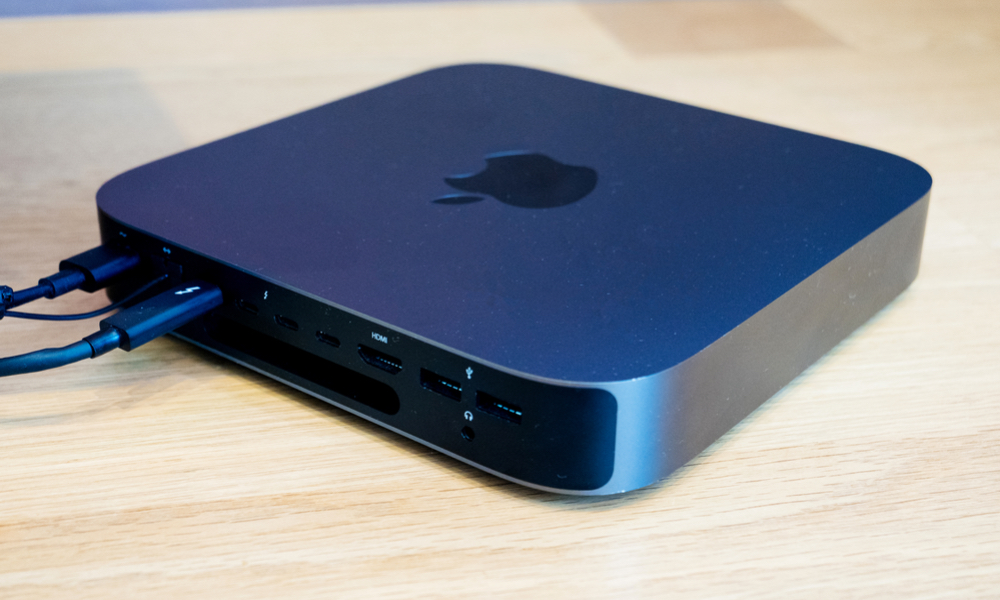Thunderbolt Won’t Be Going Away on New Apple Silicon Macs
 Credit: Hadrian / Shuterstock
Credit: Hadrian / Shuterstock
Toggle Dark Mode
There are still a lot of open questions about what Apple’s transitions to its own ‘Apple Silicon’ means for its Mac family, and while we already know that there are going to be a few pain points with the transition, another issue some have been curious about is exactly what this means for the future of the Thunderbolt port.
You see, it turns out that even though Apple collaborated on the design of Thunderbolt, it’s actually an Intel thing, so naturally, as Apple abandoned Intel CPUs in its Macs, many are wondering if Thunderbolt will be a casualty of that change.
After all, it wouldn’t be the first time that Apple has developed its own port standard. While the iPhone’s Lightning port obviously comes to mind, even Firewire (aka IEEE 1394) was originally developed by Apple as an alternative to then-glacially-slow USB 1.x.
While Apple developed it in partnership with media companies like Sony and Panasonic, however, it never gained much traction, and with its more complicated licensing requirements and the more open USB technologies improvement, Firewire eventually went the way of the dodo, and Apple partnered with Intel to develop Thunderbolt as the most direct replacement to meet the need for an ultra-high-speed data transfer standard.
The Future of Thunderbolt on the Mac
So even though Thunderbolt is primarily controlled by Intel, the fact that Apple contributed to it means that it shouldn’t be all that surprising that it’s not going to abandon it just because it’s moving away from Intel CPUs.
In a statement to The Verge, Apple reiterated its commitment to “the future of Thunderbolt,” and emphasized that it will be fully supported in Macs with Apple Silicon.
Over a decade ago, Apple partnered with Intel to design and develop Thunderbolt, and today our customers enjoy the speed and flexibility it brings to every Mac. We remain committed to the future of Thunderbolt and will support it in Macs with Apple silicon
Apple spokesperson, in a statement to The Verge
At this point, however, Apple doesn’t yet offer Thunderbolt support on any of its devices using Apple Silicon, so it’s going to have to pioneer the chipsets that allow Thunderbolt to work with ARM-based chips.
While USB-C and Thunderbolt 3 both share a common connector, not all USB-C ports are Thunderbolt 3 ports, and the iPad Pro, in particular, only supports USB-C.
Similarly, Apple’s Developer Transition Kit — a Mac mini that packs in the iPad Pro A12Z chip — also only includes standard USB-C ports, despite the fact that the actual Intel-based Mac mini models that Apple sells to consumers do offer Thunderbolt 3 support.
It’s also noteworthy that this news comes as Intel announces Thunderbolt 4, which will be built atop the upcoming USB4 spec and will use the same USB-C connector, so it’s possible that Apple may take this opportunity to leapfrog ahead with its Apple Silicon Macs and go straight for Thunderbolt 4.
This won’t offer any faster data speeds — Thunderbolt 4 remains capped at the same 40Gbps as Thunderbolt 3 — but will enable more flexibility, especially for pro users who need to juggle a lot of devices, doubling the maximum number of ports that can be used on Thunderbolt 4 hubs, docks, and monitors, and of course, it will still be completely backward-compatible with older Thunderbolt 3 devices, which means that unlike the move from Thunderbolt 2, there should be no downside to Apple making the transition to Thunderbolt 4.






